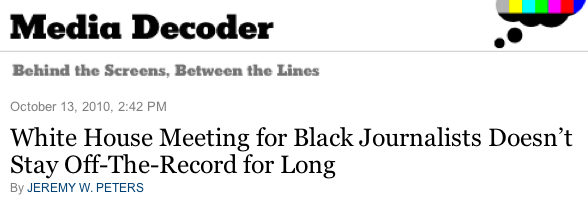Hillary Clinton has many strong females who support her. Unfortunately, many strong females are focusing more on sexism and less on ageism, and I think that may prevent Hillary Clinton from winning in 2016.
While women can make a solid case for how sexism keeps them down, there are some men who have been financially and emotionally brutalized by society as well. The end result is the focus on sexism drives a wedge between the sexes, whereas ageism does not. There are many in society who are both a victim of sexism, AND ageism.
If you are a woman over the age of 49 who is fighting against sexism, don't forget about ageism. Younger females may view older females as competition, so once a women hits her forties and feels politically motivated, focusing on ageism more so than sexism may result in a larger political base from which to try and make change.
Proof of how ageism may have stopped Hillary Clinton in 2008 more so than sexism may be found in how demographics are used in the television ratings process.
If you are a woman over the age of 49 who is fighting against sexism, don't forget about ageism. Younger females may view older females as competition, so once a women hits her forties and feels politically motivated, focusing on ageism more so than sexism may result in a larger political base from which to try and make change.
Proof of how ageism may have stopped Hillary Clinton in 2008 more so than sexism may be found in how demographics are used in the television ratings process.
We all can probably agree that the media played the biggest role in who would be the 2008 democrat presidential nominee. But it should also be noted that whom television shows pander to, is dictated by the age of the viewers, aka the demographics.
Age Demographics have been redefined by the television ratings system to completely marginalize everybody over the age of 49! This form of mathematical ageism is wreaking havoc on the buying, viewing, and voting power of those over the age of 49.
Here's how math and ageism have combined forces to debilitate the power of those over the age of 49. Presently, television demographics are clustered into two groups of 18 to 49, and 50 to end of life.
The average age of everybody between the age of 18 to 49 is around 31 years of age. The average age of everybody between the age of 50 to end of life is around 60 to 62 years of age, and there in lies the problem, two demographic groups ARE NOT ENOUGH to fairly evaluate the buying, viewing and voting power of so many different age groups.
Here's how math and ageism have combined forces to debilitate the power of those over the age of 49. Presently, television demographics are clustered into two groups of 18 to 49, and 50 to end of life.
The average age of everybody between the age of 18 to 49 is around 31 years of age. The average age of everybody between the age of 50 to end of life is around 60 to 62 years of age, and there in lies the problem, two demographic groups ARE NOT ENOUGH to fairly evaluate the buying, viewing and voting power of so many different age groups.
The problem is by dividing all adults into only two groups, the 35 to 49 group has been conveniently stolen by the demographers and included with viewers who are a lot younger. Additionally, the 50 to 62 age group, another solid buying demographic, has also been diluted by putting them in with seniors who may be living off of social security and not much else.
There really should be four age range television ratings demographics, not two, 18 to 33, 34 to 49, 50 to 65, and 65 to end of life. The 34 to 49 age range and the 50 to 65 age range should be used by the networks to see if shows that trend either "too old" or "too young" have any chance at all of building an audience in the two middle age ranges of 34 to 49 and 50 to 65.
Click on image to Enlarge.
Instead, by making television ratings only a "two horse race", the 50 and older crowd have been greatly marginalized by the television networks, resulting in ageism. The graphic above is a perfect example of ageism.
In 2012, Harry's Law was NBC's highest viewed show, yet it was canceled because the 18 to 49 viewers were deemed too low. In essence, too many OLDER PEOPLE watched Harry's law, and their "vote" was thrown out in favor of a MUCH SMALLER younger vote that other shows were receiving.Sound Familar? Even the names are similar, What happens to "Harry's Law" now could influence what happens to "Hillary Clinton's Political Fate" in 2016.
What if there were four age range demographics instead of two?
In the case of Harry's Law, what if the 34 to 49 and the 50 to 65 age range were slowly trending upwards in the ratings? Suddenly, the argument could be made that Harry's Law was either solid or gaining in THREE of the four demographic categories, not one!
In the case of Harry's Law, what if the 34 to 49 and the 50 to 65 age range were slowly trending upwards in the ratings? Suddenly, the argument could be made that Harry's Law was either solid or gaining in THREE of the four demographic categories, not one!
It was much much easier for NBC to marginalize the 6.48 million viewers over the age of 49 who watch Harry's Law by only having two rating categories instead of four.
NBC chose to focus on the extra 400,000 viewers between the age of 18 and 49 who watch Third Rock than watch Harry's Law, even though Third Rock gets 4.4 million LESS VIEWERS over the age of 49 than Harry's Law does!
The argument could be made that Third Rock was already in syndication, and therefore it made sense to renew the show since it was already making money in syndication. However, Harry's Law should do well in syndication in a couple of years, assuming there are more than two season's worth of shows to syndicate.
NBC chose to focus on the extra 400,000 viewers between the age of 18 and 49 who watch Third Rock than watch Harry's Law, even though Third Rock gets 4.4 million LESS VIEWERS over the age of 49 than Harry's Law does!
The argument could be made that Third Rock was already in syndication, and therefore it made sense to renew the show since it was already making money in syndication. However, Harry's Law should do well in syndication in a couple of years, assuming there are more than two season's worth of shows to syndicate.
How well the media treats Hillary Clinton in 2016 may hinge on whether or not television ratings go back to a four category demographic ratings system.
The marginalization of those over 49 will have a devastating affect on how television show content continues to be aimed at the younger viewer, which in turn will pressure all of the talk shows and cable news shows to skew their content towards their younger audiences as well, and that will not be a good thing for Hillary Clinton's political future. Ageism hurt Hillary Clinton in 2008, it will probably be worse in 2016.
Ageism appears to be running rampant in the present two demographic group ratings system, and this should be changed back to a four demographic group ratings system as soon as possible.
The marginalization of those over 49 will have a devastating affect on how television show content continues to be aimed at the younger viewer, which in turn will pressure all of the talk shows and cable news shows to skew their content towards their younger audiences as well, and that will not be a good thing for Hillary Clinton's political future. Ageism hurt Hillary Clinton in 2008, it will probably be worse in 2016.
Ageism appears to be running rampant in the present two demographic group ratings system, and this should be changed back to a four demographic group ratings system as soon as possible.
Please Download the Chase Bank Protest Flyer for FREE, and then all that needs to be done is just give a few copies out, it is really that simple.






























































